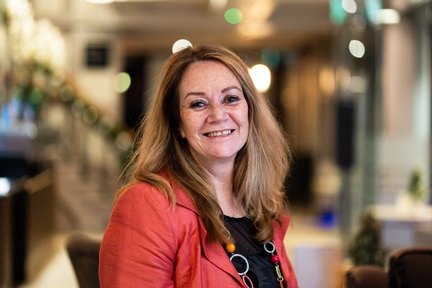Charity launches new measurement framework to show positive impact of children’s centres

An evidence and measurement framework is being launched for all children’s centres to ensure the core purposes of the centres are being met nationally.
Children’s charity 4children has launched the framework to set out the most important roles of centres, highlighting effective outreach, children’s development and helping parents with positive parenting skills as headline areas.
The framework, which will now be used as a national evidence tool, builds on research carried out by Professor Michael Marmot of University College London (UCL) and its report, An Equal Start, which detailed the most important outcomes children’s centres should be striving for.
The framework is a new national evidence tool and the charity hopes it will be vital in supporting children’s centres to maximise their potential and to demonstrate their effectiveness.
Anne Longfield, chief executive of 4Children said: “I hope that these measures will also serve as a useful tool to others in evaluating their own assessment frameworks and, more broadly, to help to improve understanding around the defined and central role that Children’s Centres play in supporting families across a wide range of areas.
“Most people working in the sector know first-hand the enormous contribution that Children’s Centres make towards supporting vulnerable children, improving social mobility and strengthening families.
However, with the undercurrent of threats from local funding pressures, it’s more important than ever for all Children’s Centre providers are able to demonstrate a clear evidence based case for continued family support based on the impact they make.”
The framework’s measures of success include improving the mental wellbeing of parents, and improving children’s play, self-management and self-control through age related play.
Dr Angela Donkin, UCL Institute of Health Equity, said: “This report sets out the best measures available for monitoring progress on important aspects of children’s development, parenting and the environment in which they live. If local areas, and the services within them, utilise the same reliable measurement standards, this will drive forward improvements in children’s outcomes and build the evidence base on what works.”
The national charity has also called for the Chancellor of the Exchequer to make commitments to improve life for families in his Budget, which will be announced on 19 March 2014.
The charity wants additional support for childcare to help disadvantaged parents return to work by increasing financial help to meet childcare costs for all working families. The charity has also called for the Government to bring forward additional support for the Troubled Families Programme to prevent a wider group of 400,000 families from falling into crisis.
Ms Longfield said: “The Chancellor has an opportunity to make a welcome commitment to families in the budget helping disadvantaged children in their early years, supporting families with complex problems, strengthening children’s centres and making childcare more affordable.”
Latest News
 24-Apr-24
Find out the top nurseries in 2024
24-Apr-24
Find out the top nurseries in 2024
 06-Jun-23
UK's top nurseries in 2023 revealed
06-Jun-23
UK's top nurseries in 2023 revealed
 16-Dec-22
Winter Wonderland: Ice sculptures, aerial acrobatics and white knuckle rides
16-Dec-22
Winter Wonderland: Ice sculptures, aerial acrobatics and white knuckle rides
 28-Nov-22
5 mins with Caroline Wright, early childhood director at Bright Horizons
28-Nov-22
5 mins with Caroline Wright, early childhood director at Bright Horizons
 25-Nov-22
Camilla gives nursery children Paddington bears left as tribute to Queen Elizabeth II
25-Nov-22
Camilla gives nursery children Paddington bears left as tribute to Queen Elizabeth II